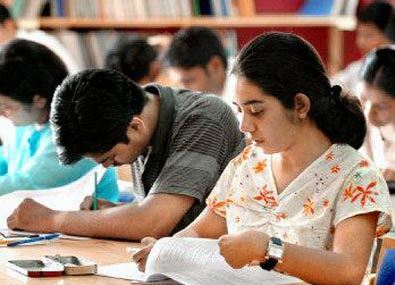 Staff Selection Commission (SSC) of Karnataka Kerala Region (KKR) has announced the exam date of Combined Graduate Level (CGL) exam 2014, popularly known as SSC CGL Exam 2014. Earlier, the SSC CGL 2014 for KKR region was scheduled to be held on April 25 and May 4, 2014. In view of the General Elections, CGLE 2014 was postponed and it was said that the exam will tentatively be scheduled in the second half of the year. Now, the SSC CGL 2014 exam date has been announced as October 19, 2014.
Staff Selection Commission (SSC) of Karnataka Kerala Region (KKR) has announced the exam date of Combined Graduate Level (CGL) exam 2014, popularly known as SSC CGL Exam 2014. Earlier, the SSC CGL 2014 for KKR region was scheduled to be held on April 25 and May 4, 2014. In view of the General Elections, CGLE 2014 was postponed and it was said that the exam will tentatively be scheduled in the second half of the year. Now, the SSC CGL 2014 exam date has been announced as October 19, 2014.
The Combined Graduate Level exam is conducted for vacant positions in the Central Government departments or various ministries at various positions such as Assistant, Assistant Enforcement Officer, Sub Inspector, Divisional Accountant, Statistical Investigator Grade II, Inspector, Auditor, Accountant/ Junior Accountant, Upper Division Clerk, Tax Assistant, Compiler, and Registrar General of India.
CGL Exam Pattern
SSC Combined Graduate Level Exam is conducted in three tiers:
Tier I
- Tier –I is a written exam with one paper common for all categories of posts.
|
Part |
Subject |
Maximum Marks or Questions |
Total Duration |
Total Duration for visually handicapped candidates |
|
A. |
General Intelligence & Reasoning |
50 |
2 hours |
2 hours 40 min |
|
B. |
General Awareness |
50 |
||
|
C |
Numerical Aptitude |
50 |
||
|
D |
English Comprehension |
50 |
||
|
Total Marks |
200 |
There is negative marking of 0.25 marks for each wrong answer. Question papers are set in English and Hindi for parts A, B and C.
Those who qualify Tier I are eligible to sit for Tier II exams.
TIER II
- Tier-II consists of written exam in three different papers or subjects. Candidates have to appear for two or all the three papers depending upon the category of posts they have applied for:
|
Part |
Subject |
Maximum Marks or Questions |
Total Duration |
Total Duration for visually handicapped candidates |
|
I |
Arithmetical Ability |
200 (100 Questions) |
2Hours |
2 Hours and 40 Min. |
|
II |
English Language & Comprehension |
200 (100 Questions) |
2Hours |
2 Hours and 40 Min. |
|
III |
Commerce/ Mathematics Statistics/Economics |
200 (100 Questions) |
2Hours |
2 Hours and 40 Min. |
Paper I & Paper II are compulsory for all categories of posts while Paper III is compulsory for the posts of Statistical Investigators Group II & Compiler. There is negative marking of 0.25 marks for each wrong answer in these papers too.
Candidates will be shortlisted for Tier III exam on the basis of their performance in Tier I & Tier II exam.
TIER III
- Candidates appearing for Auditor, Accountant, UDCs, Tax Assistant, and Compiler posts are not required to appear for the Interview round.
- For all other candidates, Personality Test or interview carry a maximum of 100 marks.
- Candidates applying for the post of Assistant in CSS have to qualify the Computer Proficiency Test (CPT) which has components of Word Processing, Spread Sheets and generation of slides.
- Candidates applying for the post of Tax Assistants (Central Excise and Income Tax), candidates need to qualify the Data Entry Speed Skill Test, in which they have to achieve a score of 2000 key depressions in 15 minutes.
The exam dates for remaining regional websites of SSC CGL exam 2014 have not been declared yet.




Comments
Add new comment